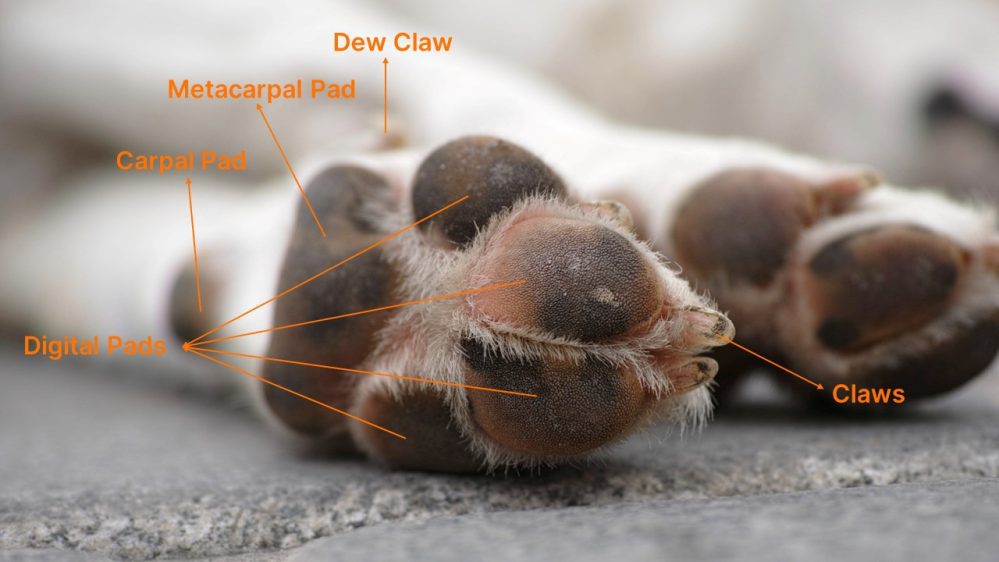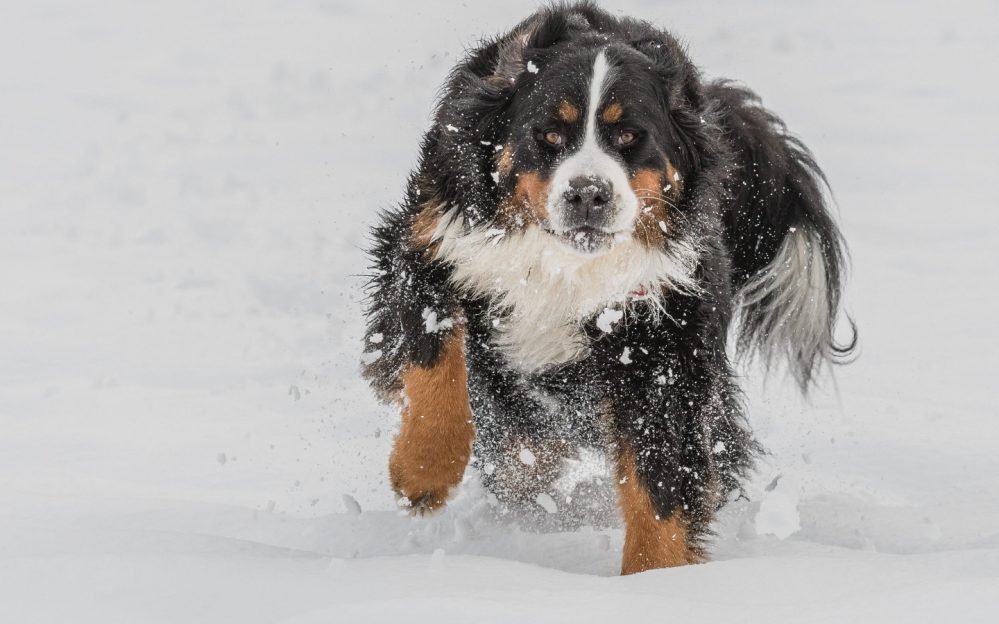Did you know that dogs’ paws have shock absorbers, a built in brake, stabilizers and insulation?
1. Paws are made of 5 external structures:
- Claws or nails
- Digital pads
- Metacarpal Pad
- Carpal Pad
- Dew claw

2. Pads
Dogs have pads which work as shock absorbers and a brake, yes you read that right!
The digital and metacarpal pads act as shock absorbers and help protect the joints and bones of the foot from concussion. The carpal pads work a little like brakes, helping the dog to hold their footing on steep or slippery slopes.
Pads have a fatty layer, which helps provide insulation. This does not mean that your dog can, or should be on hot surfaces, their pads can burn and blister, which we all know is incredibly painful. If a surface is too hot for you barefoot, then it is too hot for your dog. Although dogs cope better in the cold paw wise, in extreme cold, pads can crack and bleed.
Just like we develop callouses when we run around barefoot, dogs that spend a lot of time outside and those that are very active across all types of ground, develop rougher and thicker skin on their paws.
Pads also help dogs with proprioception and to distinguish between different types of terrain, this is why dogs walk funny when you first put shoes or booties on them.
3. Yeti of feet

Ever noticed that breeds like the St Bernard and Newfoundland have larger floppier feet? This is not just because they are bigger breeds, but their paws work rather like snow shoes, helping them to cover snow covered and icy ground more easily than their less Yeti-like counterparts.
4. “Cat” and “Hare” Feet
A shorter third digital bone, means a more compact cat-like foot. This is seen in breeds where endurance is key as the smaller foot requires less energy to lift it. The Akita, Doberman pinscher, Giant Schnauzer, Airedale terrier, Bull terrier and Keeshond, are examples of breeds who have cat feet.
Dogs with hare feet have the two middle toes longer than the outer two toes, giving a longer narrower foot. Breeds with hare feet include some toy breeds, as well as the Samoyed, Borzoi, and Greyhound, all speed merchants.
5. Wacky webbed feet

As you would imagine, dogs with webbed feet are exceptional swimmers. The Newfoundland, Labrador retriever, Chesapeake Bay retriever, Portuguese Water dog and some Spaniels all have webbed feet.

